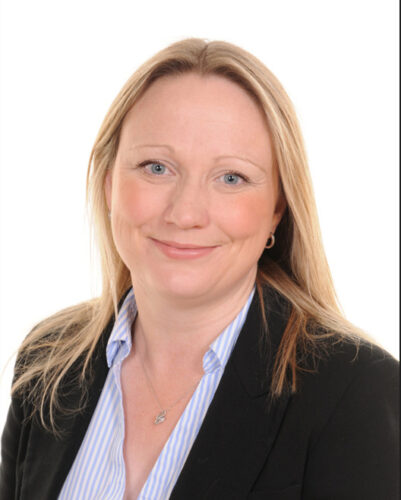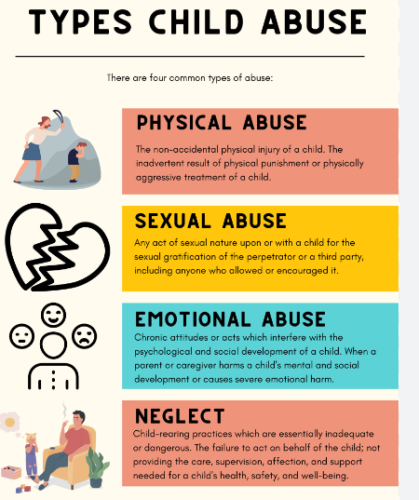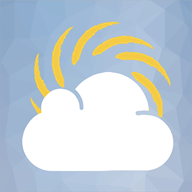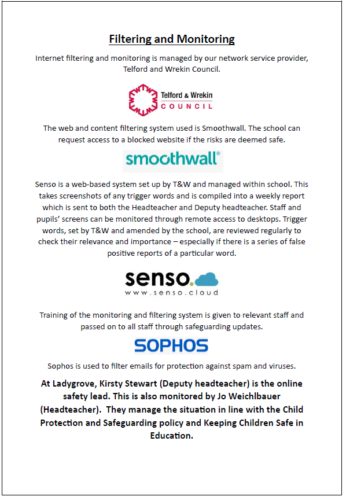Safeguarding is everyone’s responsibility!

In this section you will find information on:
- Safeguarding information
- Online safety
- Helplines
- Safeguarding newsletters
At Ladygrove Primary School and Nursery, the Governors and staff fully recognise the contribution the school plays in safeguarding children. The safety and protection of all children is of paramount importance and all staff, including volunteers, have a full and active part to play in protecting children from harm.
Our first and foremost priority is to keep your child safe and healthy; there are safeguarding notices around our school to remind staff and visitors of our policies and practices with the key message that: “Safeguarding is everyone’s responsibility.”
If you become concerned about the welfare of a child, please contact a Designated Safeguarding Lead on 01952 388370 or you can also contact Telford and Wrekin’s Family Connect directly on 01952 385385
Family Connect (familyconnecttelford.co.uk)

Kirsty Stewart Deputy Headteacher Lead DSL
Online Safety Lead
Designated teacher for looked-after (all authorities other than Telford and Wrekin), previously looked after children and children with a social worker.

Jo Weichlbauer Headteacher
Deputy Designated Safeguarding Lead
Children absent from Education lead.
CSE lead

Stuart Clarke Assistant Headteacher
Deputy Designated Safeguarding Lead
Designated teacher for looked-after (Telford and Wrekin), previously-looked after children and children with a social worker.

Charlotte Evans Assistant Headteacher
Deputy Designated Safeguarding Lead

Laura Barton Pupil & Family Support Worker
Deputy Designated Safeguarding Lead

Kerry Piper Pastoral and Well-being lead
Deputy Designated Safeguarding Lead

Beth Ellis-Lowe SENDCO
Deputy Designated Safeguarding Lead

Kathy Penny Teaching Assistant and Hub Manager
Deputy Designated Safeguarding Lead
Do you know what to look for, what abuse looks like? Do you know what to do if you are worried or concerned about a child you think maybe being abused?

Sexual Abuse
A child may:-
- Behave in an sexual inappropriate way.
- Become withdrawn or clingy.
- Have emotional outbursts.
- Become secretive.
- Act out sexual acts with toys or objects.
- Have physical discomfort –anal/vaginal soreness.
- STI’s/Pregnancy.
- Avoid or fear of being alone with certain people or family members.
- Show sexual awareness beyond their experience or age.
Emotional Abuse
A child may:-
- Have physical/emotional delay in development.
- Over react to mistakes.
- Say, I’m stupid, I’m worthless etc. I deserve this…
- Freeze, become trance like.
- Self comfort, thumb suck, hair twist or rock.
- Self-harm.
- Fear parents being contacted.
- Have poor school attendance.
- Be very passive or aggressive.
Physical Abuse
A child may:-
- Be unusually fearful of adults.
- Be unnaturally compliant to parents.
- Refuse to discuss injuries/fear medical help.
- Withdraw from physical contact.
- Be aggressive towards others.
- Wear cover up clothes.
- Behave in a way that you would not expect for their age or development.
An abuser may say the child is clumsy, fabricate or induce illness in a child.
Neglect
A child may:-
- Be dirty or smelly with unwashed clothes.
- Persistently have inadequate clothes or equipment, ie no coat or PE kit.
- Turn up to school hungry not having breakfast. Asking for or stealing food.
- Have untreated injuries, missed doctors or dental appointments.
- Skin sores, rashes, flea bites, scabies or ringworm.
- Be thin or have a swollen tummy.
- Be tired and/or pale.
- Have poor language, communication and social skills.
So what …? Do you know what to do if you have even the slightest concern?
- Speak to a Designated Safeguarding Lead in school.
- If you are not satisfied with the response call Family Connect yourself – 01952 385385.
Definition of child-on-child abuse
Inappropriate behaviours between children that are abusive in nature including physical, sexual, or emotional abuse, exploitation, sexual harassment, all forms of bullying, coercive control, hazing/initiation rituals between children and young people, both on and offline (including that which is within intimate personal relationships).
Please see the Telford and Wrekin Threshold guidance below.
Telford_and_Wrekin_Threshold_Guidance_2023_DIGI
Please see the link below for CEOP guidance for Parents in keeping safe online
Please see below document guidance on Working together to safeguard children and Keeping Children Safe in Education:
Working together to safeguard children 2023: statutory guidance (publishing.service.gov.uk)
Keeping children safe in education 2023 (publishing.service.gov.uk)
Telford and Wrekin Safeguarding Partnership (telfordsafeguardingpartnership.org.uk)
What are Adverse Childhood Experiences?
Adverse Childhood Experiences (ACEs) are “highly stressful, and potentially traumatic, events or situations that occur during childhood and/or adolescence. They can be a single event, or prolonged threats to, and breaches of, the young person’s safety, security, trust or bodily integrity.” (Young Minds, 2018).
Examples of ACEs:
Physical abuse
Sexual Abuse
Emotional Abuse
Living with someone who abused drugs
Living with someone who abused alcohol
Exposure to domestic violence
Living with someone who has gone to prison
Living with someone with serious mental illness
Losing a parent through divorce, death or abandonment
How Common are ACEs?
In a 2014 UK study on ACEs, 47% of people experienced at least one ACE with 9% of the population having 4+ ACES (Bellis et al, 2014).
Impact of ACEs
Just like attachment, experiencing ACEs can have an impact on our future physical and mental health, and often ACEs can be barriers to healthy attachment relationships forming for children. Some of the effects of ACEs on our physical and mental health are:
An increase in the risk of certain health problems in adulthood, such as cancer and heart disease, as well as increasing the risk of mental health difficulties, violence and becoming a victim of violence.
An increase in the risk of mental health problems, such as anxiety, depression, and post-traumatic stress. 1 in 3 diagnosed mental health conditions in adulthood directly relate to ACEs.
The longer an individual experiences an ACE and the more ACEs someone experiences, the bigger the impact it will have on their development and their health.
Some of the other things exposure to ACEs can impact, are:
The ability to recognise and manage different emotions.
The capacity to make and keep healthy friendships and other relationships.
The ability to manage behaviour in school settings.
Difficulties coping with emotions safely without causing harm to self or others.
Link to an ACEs quiz:
Link to a short clip on ACEs:
https://www.youtube.com/watch?v=XHgLYI9KZ-A
Online Safety Guides
Our Ladygrove Guide
ABC guide
Useful Guide from National Online Safety
Tik Tok
A Guide for parents and carers CSE 2022 leaflet DIGI
Online gaming
Whatsapp
Click the link for a great resource to use at home to agree on how to use the internet safely with your child.  https://www.internetmatters.org/resources/digital-family-agreement-template/
https://www.internetmatters.org/resources/digital-family-agreement-template/
Online Safety Newsletter
Online Safety Newsletter Primary September 2023
Online Safety Newsletter Primary October 2023
Online Safety Newsletter Primary November 2023
Online Safety Newsletter Primary December 2023
Online Safety Newsletter Primary January 2024
Online Safety Newsletter Primary February 2024
Online Safety Newsletter Primary March 2024
Online Safety Newsletter April 2024
Online Safety Newsletter May 2024
The Independent Inquiry into child sexual exploitation was set up to investigate and establish the facts of child sexual exploitation in Telford.
Child Sexual Exploitation Information for Parents.
Child-Sexual-Exploitation-October-2023
Childline Website
NSPCC PANTS
Tips and advice to help keep your kids safe
Talk PANTS is here to help children understand that they have a right to say no and if they need to speak out about something, someone will listen.
We know that a simple conversation can make a BIG difference, and that’s what Talk PANTS is all about.
NSPCC Learning has published a podcast episode on early intervention and support for parents experiencing adversity. The two-part episode focuses on For Baby’s Sake, a service providing therapeutic and trauma-informed support to expectant parents who have experienced domestic abuse. The episodes discuss: the first 1001 days of a child’s life; how trauma affects brain development; and building trusting relationships between services and service users.Listen to the podcast: Podcast: Supporting new parents through adversityVisit the YouTube for part one: Supporting new parents through adversity – part oneVisit the YouTube for part two: Supporting new parents through adversity – part two
Useful Contacts
Telford & Wrekin Domestic Abuse Service – Cranstoun
Home – Women’s Aid (womensaid.org.uk)
Telephone: 0808 2000247
Telephone: 0808 168911
Samaritans | Every life lost to suicide is a tragedy | Here to listen
116 123
Telephone: 08457 909090

Strengthening Families – SEND – Local offer (telfordsend.org.uk)
SEND – Local offer (telfordsend.org.uk)
Bright Sky
 Bright Sky is a free to download mobile app providing support and information for anyone who may be in an abusive relationship or those concerned about someone they know.The app is also available to use in Polish, Punjabi and Urdu.For more information, please see details and advice about using the app in your app store:
Bright Sky is a free to download mobile app providing support and information for anyone who may be in an abusive relationship or those concerned about someone they know.The app is also available to use in Polish, Punjabi and Urdu.For more information, please see details and advice about using the app in your app store:
Online Safety – Filtering and Monitoring
Filtering and Monitoring Poster









